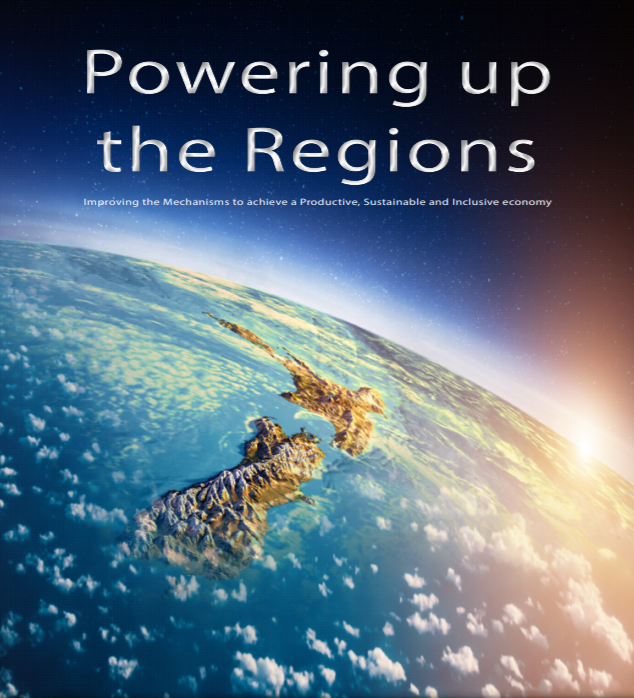Powering up the Regions requires collaborative networked action
Drawing on his research, experience and professional practice, Dr. David Wilson founder of Cities and Regions Ltd - an independent research consultancy supporting regional development in New Zealand - published the paper titled "Powering up the Regions. Improving the Mechanisms to achieve a Productive, Sustainable and Inclusive economy". Building on the role that improved mechanisms enabling regional economic development (RED) have in implementing the national policies aimed at addressing climate change and well-being at the same time as increasing productivity, exports, green and high value economic activities, the paper underlines the importance of institutional strengthening for Regional Economic Development Agencies (REDAs) for increasing productivity by taking advantage of market opportunities, by building on regional strengths, by strengthening the enterprise development ecosystem, and by developing smart specialisations and regional innovation.
Much of what is missing in the approach to economic development is what happens at the meso level. Macro-economics deals with settings and policies to engineer changes in employment, GDP, interest rates, productivity and so on. It is the business of government. Micro-economics concentrates on the firm (individual businesses), looking to increase innovation and productivity at the firm level. What is missing is a concentration on collections of firms, clusters, that together increase their competitive position, nationally and internationally. RED is a Meso approach. It looks to bring geography (the network dynamics and assets of a place) and economics together. It is more than economic theory.
New Zealand, with a population approaching 5 million, is a small geographically isolated nation, that embraced neoliberalism in the 1980s. Parties on the left and the right have stuck to this for over 30 years. As a result, trickle-down and leave it to the market policies have seen a decline in NZs international competitive position and increasing inequality. In the last twenty years exports as a percentage of GDP have declined from around 36% to 28%, non-tradables have overtaken tradables, tradables and services exports as a share of GDP have both been shrinking and productivity growth has been dismal. New Zealand’s goods exports are still dominated by bulky commodities with high transaction costs, such as logs, milk powder and meat. Auckland is one of the most expensive places in the world to live in and buy a house.
"New Zealand must embrace collaboration to build specialisations and stronger positions in global value chains if it is to increase productivity and prosperity. Hoping that the market will bring public good outcomes, in and of itself, is flawed. Prosperity, sustainability and inclusiveness are collaborative efforts not atomistic ones."
"RED needs to be a whole-of-government function with enough subsidiarity in the system to ensure that there is balanced, thoughtful and strategic delivery at the regional level. Increasing the potency of REDAs as mechanisms for the realisation of regional potential and national aspirations is vital."
"Empowering regions to address global challenges is a pragmatic exercise as it can operate at a level where actions and progress are observable, and where different domains of knowledge come together to address complex and stubborn issues. The silos of economics, social development, sustainability and inclusiveness fuse at a local level."
Please find the full report here for an interesting reading.
Dr David Wilson of Cities and Regions Ltd claims authorship of this paper and recognises the contributions, quotes and ideas of many others contributing to the views set out in the paper. Please recognise his authorship when referring to the content, ideas and recommendations contained in the paper.
